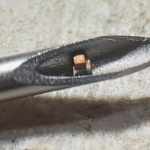What we know about aducanumab, the new drug to treat Alzheimer’s disease
Earlier this week, the federal Food and Drug Administration (FDA) approved the use of the drug aducanumab to treat Alzheimer’s disease—making it the first new drug in nearly 20-years to treat the disease. Aducanumab is the first of a new generation of drugs that target the underlying damage in the brain. Anton Porsteinsson, M.D., is director of the Alzheimer’s Disease Care Research and Education Program (AD-CARE) at the University of Rochester Medical Center. He has spent the past 10-plus years as the principal investigator of Biogen’s clinical trial for aducanumab at the Medical Center. And in the past year, he was hired as a consultant for Biogen to help with the Biologics License Application for aducanumab and testified before the FDA on the clinical findings of the drug—findings he is hopeful will change how Alzheimer’s disease is evaluated and treated. Dr. Porsteinsson is also the William B. and Sheila Konar Professor of Psychiatry, Neurology, Neuroscience, and Medicine at the University of Rochester. We caught up with Dr. Porsteinsson to shared his incite about aducanumab and what it means for the disease that afflicts nearly 6 million Americans.










